Life
Sign up for our newsletter
We summarize the week's scientific breakthroughs every Thursday.
-
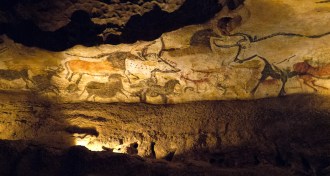 Animals
Animals‘Domesticated’ explores how humans have altered animals
Science journalist Richard Francis delves into the genetic changes humans have caused in dogs, cats, pigs, horses, camels and more.
-
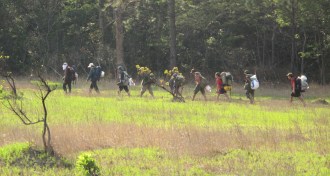 Animals
Animals‘The Last Unicorn’ takes readers on quest to see a saola
Nature writer William deBuys introduces readers to the enigmatic saola of Southeast Asia.
-
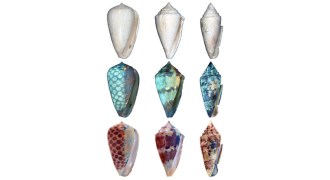 Oceans
OceansUV light reveals hidden patterns on seashell fossils
Under UV light, fossil seashell color patterns glow, a researcher finds.
-
 Environment
EnvironmentFive years on, Deepwater Horizon oil spill’s impact lingers
Five years after the Gulf of Mexico’s largest disaster, researchers are still studying its ecological impact and struggling to learn the fate of most of the spilled oil.
By Beth Mole -
 Science & Society
Science & SocietyForensic analysis finds ‘Blurred Lines’ case not so clear
In March, courts ruled that the song “Blurred Lines” borrowed from Marvin Gaye’s “Got to Give it Up.” But a closer look finds the songs aren’t all that alike.
-
 Anthropology
AnthropologyFootprints offer clues about daily hominid life
Early male members of the human genus spent a lot of time together by the water, as their footprints attest.
By Bruce Bower -
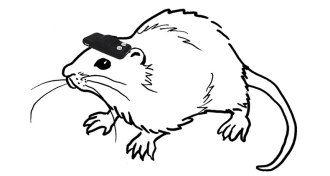 Neuroscience
NeuroscienceRats can navigate mazes, even when blind
Blind rats can learn to navigate with a compass and microchip prosthetic wired into their brains. Similar devices may one day help humans have super senses.
-
 Animals
AnimalsFossilized seashells’ true colors revealed
To the naked eye, fossilized seashells lack the colorful patterns of their living counterparts. But ultraviolet light can reveal some of their unique hues.
-
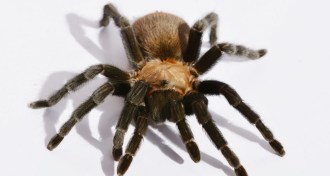 Animals
AnimalsHeat makes scuttling tarantulas less coordinated
On hot days, tarantula run faster, but their may be harder to bend and flex at high speeds, researchers find.
-
 Health & Medicine
Health & MedicineA more accurate prenatal test to predict Down syndrome
A test to detect genetic problems such as Down syndrome examines a baby’s DNA in the mother’s blood and may limit the need for more invasive screening.
-
 Animals
AnimalsHow human activities may be creating coywolves
Endangered red wolves will mate with coyotes when their partners are killed, which often happens because of human activities, a new study finds.
-
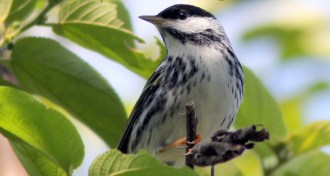 Animals
AnimalsSongbird crosses the Atlantic in a nonstop flight
Using light-sensing geolocators, researchers confirm an iconic songbird’s impressive transoceanic migration.